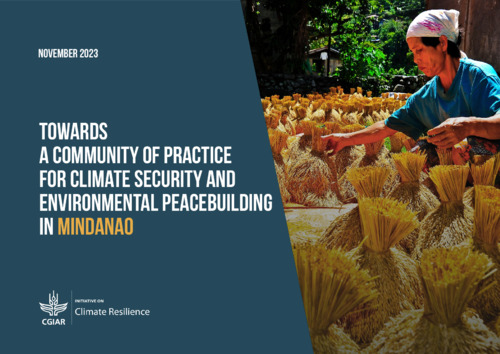Towards a community of practice for climate security and environmental peace building in Mindanao: Workshop memory report
Abstract
In March 2014, the Government of the Philippines and the Moro Islamic Liberation Front signed the Comprehensive Agreement on the Bangsamoro, which intended to end an armed conflict that had endured for decades. As has been widely recognized, issues related to environmental resources and the management of land in Mindanao played a crucial role in driving the conflict. Political and cultural structures, both historical and present, that influence people´s access to natural resources and the benefits of economic development from land and agriculture have, under a Mindanao context, exacerbated underlying drivers of conflict. Acknowledging this, the Comprehensive Agreement on the Bangsamoro integrated a focus on increasing access and representation of local populations in the management of natural resources. This crucial point is especially relevant in a context whereby most of the population directly relies on natural resources and small-scale agriculture for their livelihood. This welcomed development comes at a time when climatic stressors and shocks are altering food, land, and water systems for millions of lives, and driving important socioeconomic challenges for food security and the stability of rural livelihoods across the Philippines. Although climate change and environmental degradation affect everyone, social groups experience these effects differently, at times reinforcing patterns of marginalisation and inequality. As such, environmental and climatic threats to livelihoods and access to resources can compound existing drivers of conflict. At the same time, societal efforts to increase resilience in the face of climate threats can serve as an entry point to protect the CLIMATE CHANGE INEQUALITY CONFLICT FOOD DROUGHT livelihoods of conflict-affected populations, foster engagement and trust between conflictive parties, and strengthen the relation between states and societies. If planned accordingly, climate action can indeed act as an instrument for peace.

